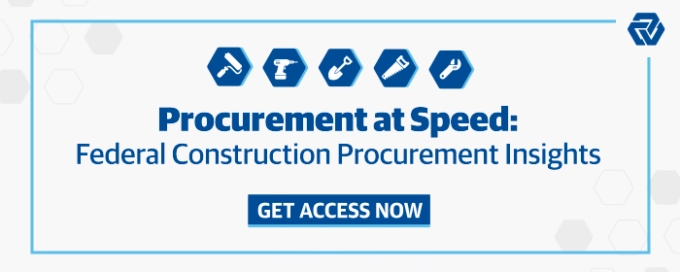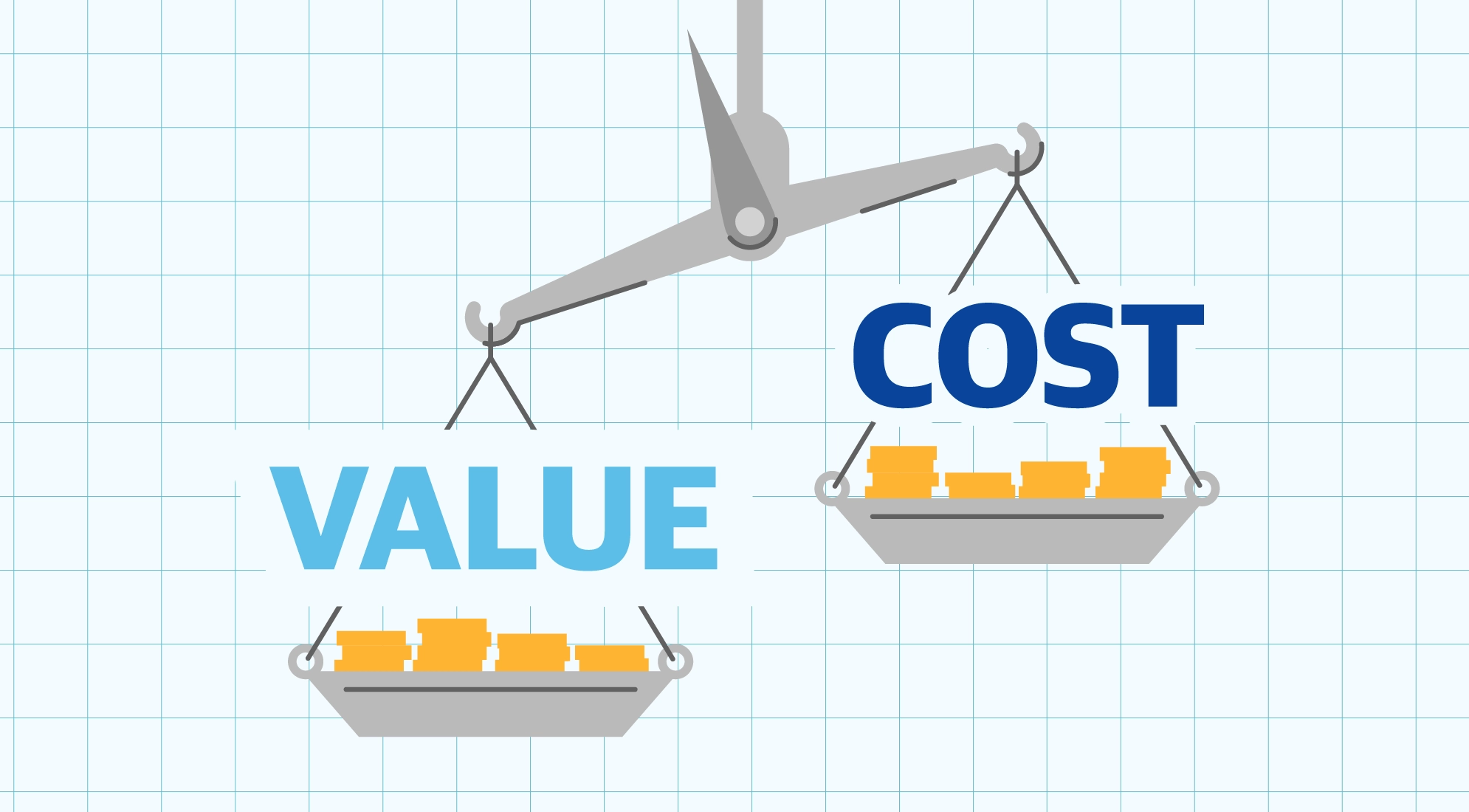In a recent webinar produced in partnership with the Society of American Military Engineers, Gordian spoke with experts in Federal and military construction about the challenges agencies and installations face during the construction procurement process. One particular challenge rose to the top: the Federal budget setting cycle.
The timing with which Federal budgets are set creates a steep hurdle for both those planning projects and those completing the work to overcome. Two experts from different sides of the aisle – Christopher Reinhardt, a Chief with the New York District U.S. Army Corps of Engineers, and David Scruggs, a Division Chief of Public Works at USAG Fort Riley – agreed on this point.
Constraints of the Federal Budget Cycle
According to David Scruggs, Army garrisons, like most Federal agencies and military installations, run on a one-year budget cycle, with the budget being reset every 12 months. In David’s experience, this cycle can make it difficult for installations to plan and execute sustainment, repair, maintenance and new construction projects. “Budgets normally aren’t set until late Q2,” he remarked, or sometimes, “we only have six to seven months to execute our yearly annual work plan.” This condensed timeline means it’s difficult to predict which projects on the priority list will be approved for funding and which will fall off the table.
A constrained timeline adds one level of pressure to project planning. Changes in requirements add another. The traditional Federal construction procurement process, which has long been notoriously slow, may now move even slower due to added levels of regulation or guidance along the way. Guidance on sustainability measures, contractor inclusiveness and small business support, while all positive changes, bring new layers of administrative oversight to the design and procurement processes, which add to project lead times.
Because of this, new emphasis is being placed on master planning in Federal spaces. According to Christopher Reinhardt, “Installations are being asked to examine upcoming projects and develop projects to at least 15% design or have better cost estimates one to two years out.” The hope of this emphasis is to get a head start on project design and diminish the time before a project breaks ground. But planning so far out can be a risk. If leaders aren’t certain that funds will be approved for certain projects, they may decide it’s not worth investing time and resources into creating plans for those projects.
So how can Federal agencies and military installations avoid wasting time and resources while still getting a head start on the planning cycle? The answer lies, at least in part, in a particular procurement method.
Beating the Time Crunch with Pre-Competed Contracts
With traditional procurement methods, initial estimates are created, designs are drawn up and funding sources are determined before the project is even made available for contractor bidding. There’s then a lag time for contractors to prepare their bids, an agency review of submitted bids and, finally, a contract award. This process typically ranges anywhere from six months to several years.
For agencies and installations working with less than a year to plan the use of their remaining budget, such an elongated pre-construction timeline presents a challenge. Reserving funds for projects in the design phase, which won’t break ground for another year or two, is a risk, as money that isn’t used within the year could be cut from the following year’s budget.
What is truly needed is a way to move the pre-construction phases of a project along faster, which happens to be a benefit of Indefinite Delivery/Indefinite Quantity (IDIQ) contracts. Federal IDIQ procurement contracts, which include SATOC, MATOC, POCA, JOC and more, are pre-competed contracts. This means that quality contractors are awarded to complete the contracted work before specific projects have been identified or scoped.
Plus, as the IDIQ title implies, these contracts can be used for an indefinite number of projects. So rather than adding months to each project’s timeline to account for the bidding process, you can fast track projects from design to execution. All of that adds up to completing many more projects in less time. According to Scruggs, “In a single year, 2009, we awarded $42 million on 125 task orders throughout the year.”
And owners don’t need to worry about sudden price increases for quick contractor responses. Prices for construction tasks and materials completed through Federal IDIQ procurement contracts are preset at mutually agreed-upon rates, which the owner and awarded contractor set together during the contract awarding process. These prices won’t be affected by the urgency of the work or fluctuations in market values, which makes IDIQs an extremely handy solution for year-end spending. Scruggs recounted one budget year in which this was especially crucial: “We were able to award $6 million within a day to avoid losing those unobligated funds.”
“We were able to award $6 million within a day to avoid losing those unobligated funds.” – David Scruggs, Division Chief of Public Works | USAG Fort Riley
This also enables agency and installation leaders to pre-plan projects without worry of wasting time and resources. Even if a project ends up not fitting this year’s budget, it can quickly be pulled off the shelf for next year’s, once funding is approved. As Reinhardt put it, “Sometimes we work things up and they never get funded. But the benefits [of having a project plan ready to go for the future] outweighs the risk.”
IDIQ contracts also satisfy the necessary state and Federal requirements, which again saves time in the pre-construction process. “Having pre-competed procurement is very helpful,” Scruggs noted, “to ensure requirements are met during the short [planning] period.”
Getting Federal IDIQ Procurement Programs Rolling
Once a Federal IDIQ procurement contract has been awarded to a contractor or group of contractors, they can complete any number of projects that the awarding agency orders throughout the life of the contract. Federal IDIQ contracts typically last anywhere from one to five years. So during that time, as long as there are funds available to complete a project, it can promptly move through scoping and design, then immediately onto execution.
“JOC (a specific type of IDIQ contract) moves quickly when funding becomes available and people are ready to execute the project. Sometimes issuing the RFP can take the longest time of the whole process,” Reinhardt explained. Scruggs agreed, then offered an example of how quickly those IDIQ projects can move. “JOC contracts provide flexibility. We’ve been able to issue emergency projects in less than a week. You can even design projects ahead of time, put them on the shelf, then use them to take up excess funds in Q4 year-end.”
“JOC contracts provide flexibility. We’ve been able to issue emergency projects in less than a week.” – Christopher Reinhardt, Chief | New York District U.S. Army Corps of Engineers
There are a wide range of projects that IDIQ contracts can be used for. Reinhardt noted that he’d seen everything from single offices to multiple battalions’ worth of barracks completed through IDIQs. “The depth and breadth of what you can use them for is unlimited.” In dollar amounts, Scruggs noted that his installation has used Federal IDIQ procurement contracts for “everything from $2,500 to over $5 million.”
Gordian has long been a reliable partner for Federal agencies and installations looking to stand up Federal IDIQ procurement programs. For over 30 years, our experts have helped customers in Federal and military spaces build JOC programs tuned to best practices that ensure efficient, cost-effective project completion. Our JOC programs provide quality, vetted contractors to help Federal owners complete more projects within the tight budget cycle.






